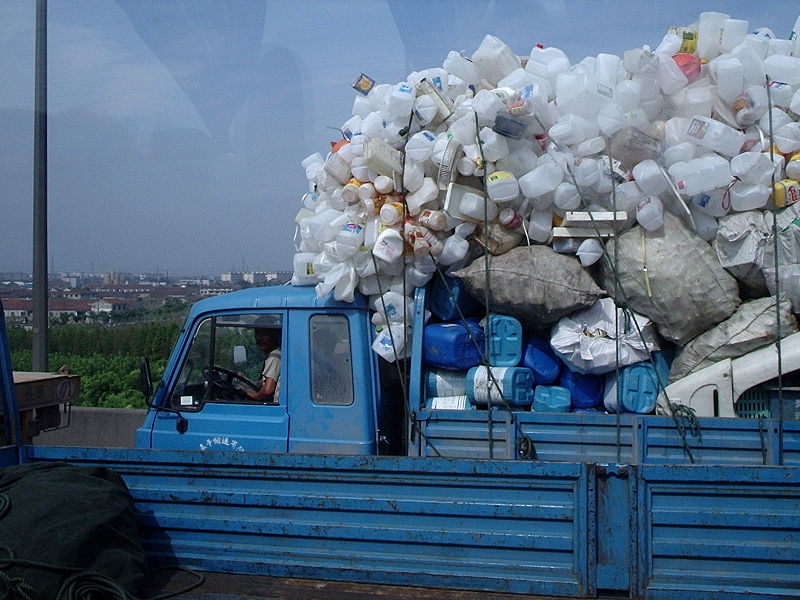Plastic Bags? Throw ’Em Away
Fewer Things Are Recyclable in South Santa Barbara County

Recycling plastic bags has a new “new normal” and it’s called “throw it away,” says the County of Santa Barbara. This goes against everything we’ve internalized about plastics lately. But America’s longtime recycling partner, China, has decided it’s done with being sent garbage disguised as recyclables. It now wants “clean” recycling, or paper, plastic, and metal unadulterated with water, oils, or just plain crud — and other countries have followed suit. Plastic bags are interfering with the “new clean,” and Santa Barbara County is rolling with the punches with some new recycling rules.
The entrails from MarBorg and E.J. Harrison’s blue recycle bins go to Gold Coast Recycling in Ventura, where magnets and screens do initial sorting. The rest is done by hand. Workers pull off the line plastic bags and plastic wrap — because their recycle market has vanished and they must be thrown into the landfill — and the bags “snag and pull things off the line that should be recycled, like cans and cardboard. It takes time and energy to sort it out,” explained Carlyle Johnston with county Public Works. That’s why Santa Barbarans are now being asked to put plastic wrap (like food coverings) and plastic bags into the brown trash bins.
The county hasn’t been able to send its plastic bags to China for recycling for several years, said Johnston. So much used plastic is on the world market that China decided to choose its environment over its recycling economy, he said, and set its standards very high to limit what it would accept. This was in part because 60,000 small do-it-yourself recycling entrepreneurs were ruining local ecosystems with toxins, he said. Other countries joined China’s demand that recyclable items must be less contaminated with trash, or cleaner, than they had been. With the looming trade war, the rules tighten and relax as market conditions change on a daily basis, so Santa Barbara County is taking it one step at a time. It’s an uphill battle.
There’s those who recycle, summarized Johnston, those who hope that what they’ve put in the bin is recyclable, and those who just figure they now have two trash bins, one brown and one blue. For errant plastics, the problem by weight is not great, Johnston said. “But by volume, it’s significant. It’s what appears most in the contaminated bales.” As much as 18.8 percent of Santa Barbara’s blue bin content is hauled back up to the landfill at Tajiguas as trash. Of the genuinely recyclable stuff, plastics #1 and #2 are melted at a facility in California and remade into items like plastic clam-shell berry boxes or playground equipment, respectively; glass of all colors is crushed in Los Angeles as road amendment; paper goes to Vietnam; and metals’ destination varies with supply and demand.
What can be recycled?
• Dry, clean paper, junk mail, and corrugated cardboard
• Plastic #1 and #2 containers (drink, laundry bottles)
• Glass
• Clean metal
• Milk cartons (steeple-topped cartons)
Johnston said that containers just need to be empty, not completely cleaned out. He added that some grocery stores take their plastic bags back, but he didn’t know how or where they were recycled.
What cannot be recycled?
• Pizza boxes (the oil is a contaminant)
• Plastics other than #1 or #2
• Composite packaging, like plastic and paper glued together
• Anything and everything not on the recyclable list
Weirdest thing anyone’s tried to recycle? “Ammo,” said Johnston. “We did an audit of the metals one time, and someone somewhere had put live ammunition in the blue bin.”
Editor’s Note: This story was changed on September 24, 2018, to reflect that it is plastic bags that have been rejected by China for several years. Other plastics were accepted last year.


